
The second Annual Summer School “Knowledge Transfer and Data Exchange” was hosted by the Tien Shan Highlands Research Center (TSHRC) at the Institute of Water Problems and Hydropower (IWP-Hydropower) of the National Academy of Sciences of the Kyrgyz Republic (NAS KR) during the period from 6th to 11th of August 2022. The Summer School was organised with the participation and support of the Potsdam Institute for Climate Impact Research, the Research Centre for Ecology and Environment of Central Asia (RCEECA), Kyoto University (Japan), LEGOS Laboratory (Toulouse, France), the University of Central Asia (Aga Khan Foundation) and the Institute of Water Problems of the RAS.
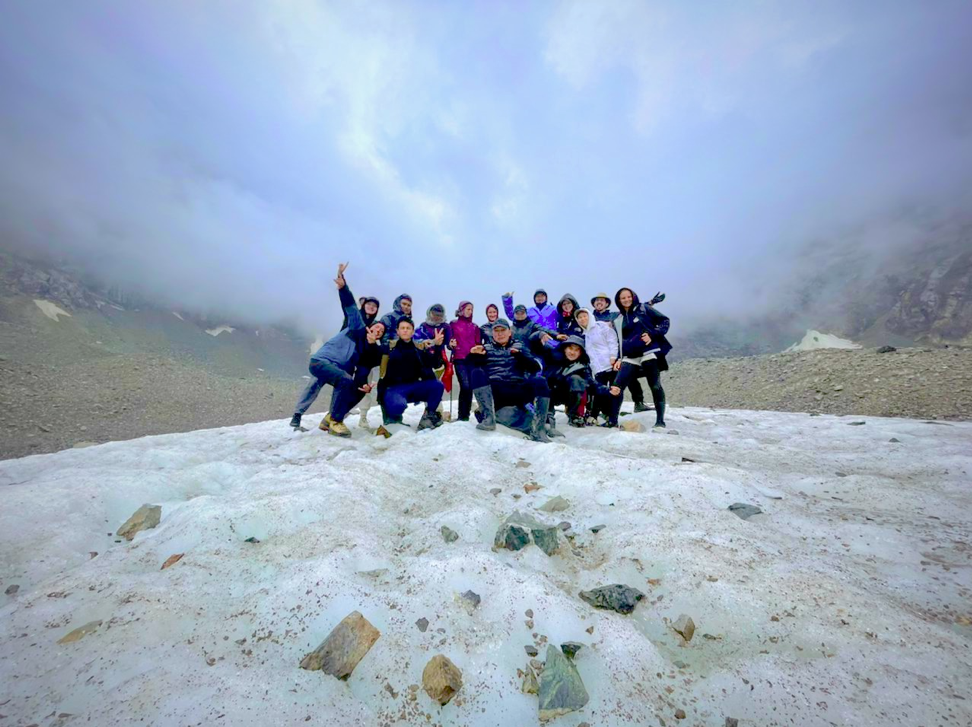 Expedition of Summer School-2022 participants to the Kara-Batkak glacier
Expedition of Summer School-2022 participants to the Kara-Batkak glacier
School was held for advanced training and innovative data exchange under the Satellite and instrumental monitoring of water resources in Central Asia Programme. It was attended by 32 students, graduate students, young specialists and scientists from Central Asia in the field of meteorology, hydrology, glaciology and ecology . The main goal of the annual international Summer School was to enhance the scientific and technical capacity of young specialists and scientists of CA in the field of water resources by training them to use and analyse the data and measuring methods available at TSWC and to learn from the experience of international scientific partners.
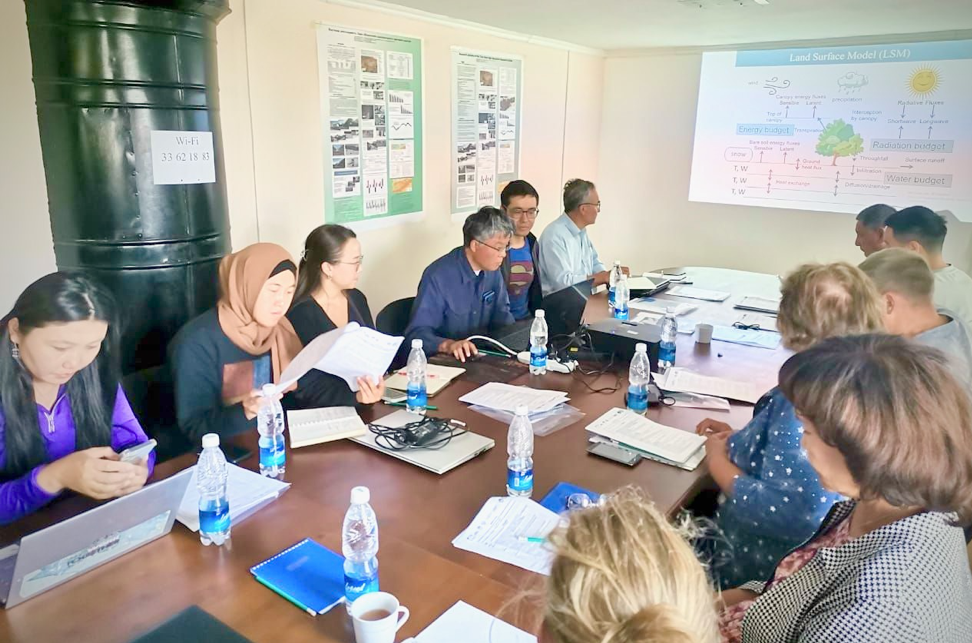 Seminar "Satellite and instrumental monitoring of water resources in Central Asia
Seminar "Satellite and instrumental monitoring of water resources in Central Asia
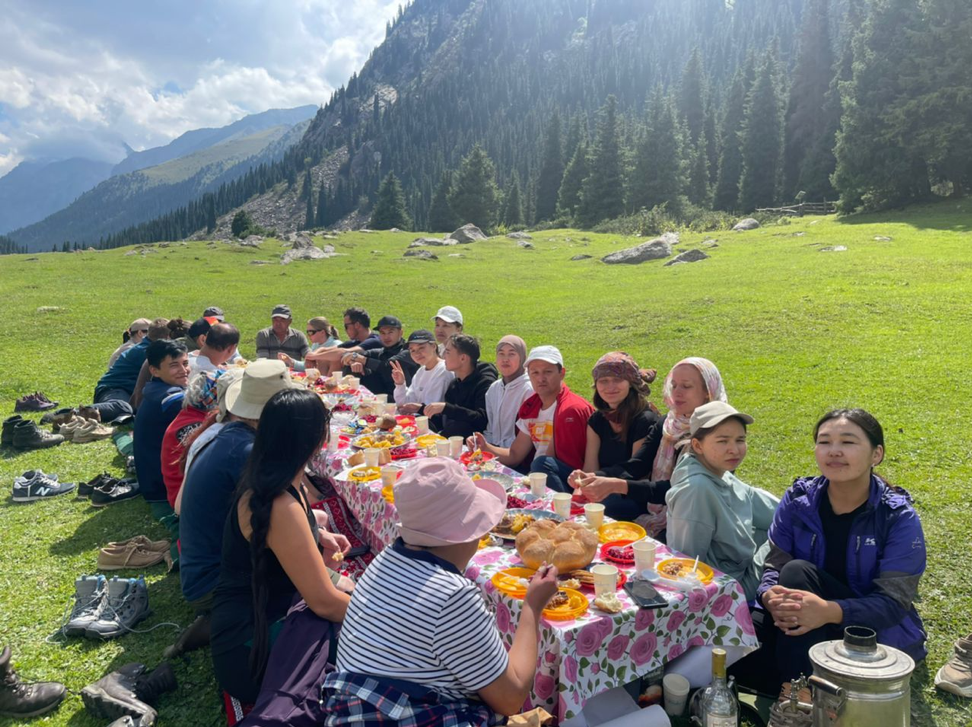 Summer school participants -2022
Summer school participants -2022
The participants were trained to use remote and field instrumental observations at ground stations and automatic weather stations at the Kara-Bulun lake camp located on the shore of lake Issyk-Kul (1607 m), hydrological stations and weather stations in the Chon-Kyzyl-Suu basin (1760, 2000, 2550 m) and on the Kara-Batkak glacier (3400 m). Training was conducted on water level recorders (loggers), hydrological radars, glacier ablation rods, Snow Water Equivalent (SWE-KU) automatic snowfall control devices, GPS surveys of glacier tongue surface, remote UAV (drone) observations and data processing programs.
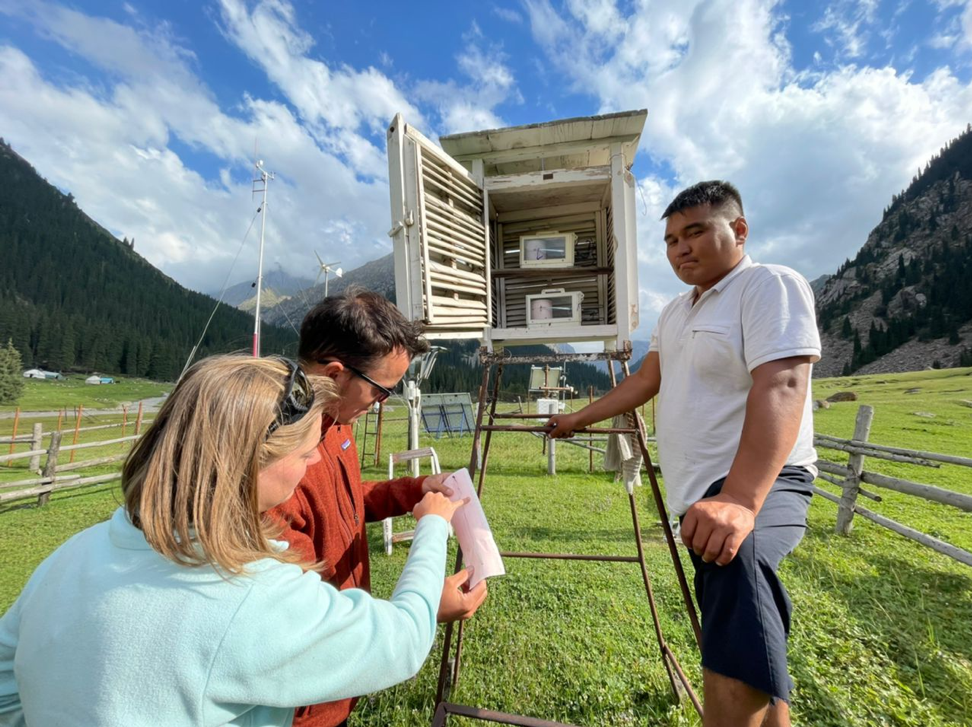 Field observations at ground stations and automatic weather stations
Field observations at ground stations and automatic weather stations
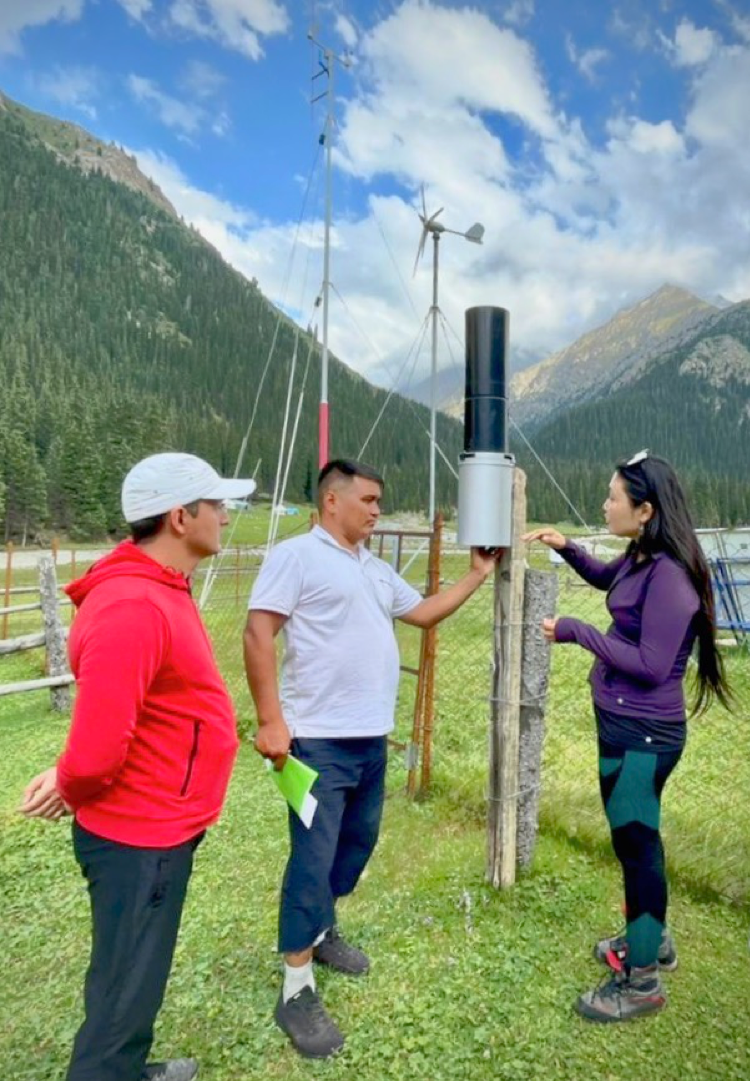
Quantitative assessment of data collection on meteorology, hydrology and glaciology under field conditions at different altitudes





